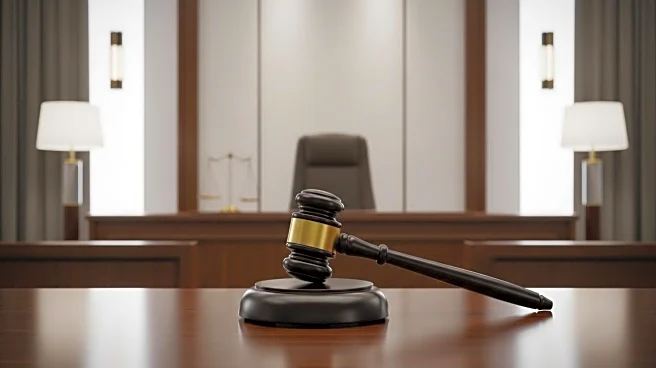What is the story about?
What's Happening?
On October 1, 2025, Kim Kardashian and Kris Jenner filed a defamation lawsuit against Ray J in the Los Angeles Superior Court. The lawsuit stems from Ray J's claims during a September 24 livestream, where he alleged that the Kardashian-Jenner family was under a federal RICO investigation. The complaint, which is 13 pages long, accuses Ray J of making false statements that have caused reputational and financial harm to the family, whose combined net worth exceeds $2 billion. The lawsuit highlights the impact of social media rumors on celebrity reputations and the potential legal consequences of such claims.
Why It's Important?
This lawsuit underscores the growing intersection between social media and legal accountability, particularly for public figures. The case could set a precedent for how viral social media claims are treated in court, potentially increasing the liability for individuals who make defamatory statements online. For the Kardashian-Jenner family, the lawsuit is a strategic move to protect their brand and business interests, as negative publicity could affect their commercial partnerships. Companies associated with the family may reconsider their deals if the legal battle impacts the family's public image, highlighting the broader implications for celebrity endorsements and brand collaborations.
What's Next?
As the lawsuit progresses, it will be crucial to observe how the court addresses the role of social media in defamation cases. The outcome could influence future legal strategies for celebrities and public figures facing similar situations. Additionally, brands and advertisers will be closely monitoring the case to assess any potential impact on their partnerships with the Kardashian-Jenner family. The legal proceedings may also prompt discussions about the need for clearer guidelines on the use of social media as evidence in defamation cases.
Beyond the Headlines
The lawsuit raises questions about the ethical responsibilities of influencers and public figures in the digital age. As social media continues to blur the lines between personal expression and public accountability, this case could lead to a reevaluation of how online statements are regulated and the potential consequences for those who misuse their platforms. The legal battle may also prompt a broader conversation about the balance between free speech and the protection of reputational rights in the context of social media.

















